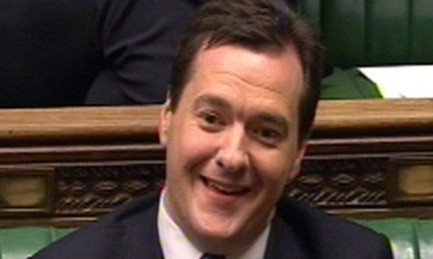Tax rises totalling as much as £12.5 billion, the equivalent of almost 3p on the basic rate of income tax, could be in the offing after the 2015 general election as a result of decisions in Wednesday’s Budget, an economic think tank has suggested.
Chancellor George Osborne has set a course for “severe” cuts to public spending in the years 2015-18, and it is now “more likely than not” that post-election tax rises will be used to take some of the pressure off Whitehall departments, said the Institute for Fiscal Studies.
But the Treasury insisted there would be “no need for higher taxes,” as its plans rely on cutting public spending as a proportion of national income.
Just to keep annual reductions in spending to the same rate seen since 2010 would require the Government to find £9 billion from other sources, such as tax rises or cuts to welfare or pensions.
Departments will also have to find £3.5 billion to cover National Insurance payments for public sector workers as a result of the decision to bring forward the introduction of single-tier pensions to 2016.
IFS director Paul Johnson said he expects at least some of this £12.5 billion to be covered by tax rises.
A passage in the Budget documents, noting “it would, of course, be possible to do more of this further consolidation through tax” suggests the Treasury has considered the option of post-election tax hikes, he said.
Mr Johnson said the comment betrayed “a degree of scepticism” within the Treasury over the prospect of achieving the desired savings by spending cuts alone. Without help from any other source: “the outlook for unprotected spending looks grim indeed”, he said.
The most straightforward way to find some of the money would be a penny on the basic rate of income tax, but this would be politically explosive.
A Treasury aide said: “Our plans are very deliberately based on cutting spending rather than raising taxes.
“By the end of the period, public spending is forecast to fall to 40.5% of GDP, close to its historical average, so there is no need for higher taxes.”
Mr Osborne’s decision to increase income tax personal allowances and cut fuel and beer duties and corporation tax in the Budget will bring the loss to the Exchequer from changes to these levies since 2010 to a “pretty remarkable” £24 billion by 2016-17, said Mr Johnson.
“That would be a big investment at any time,” he said. “In the current fiscal climate this is a striking investment in a narrow range of priority areas.
“It’s a combined tax cut worth nearly double the amount raised by the rather painful increase in the main rate of VAT to 20% in 2011.”
The IFS was critical of the Government’s drive to rein in spending in the first few months of 2013 in order to ensure borrowing in 2012-13 was lower than the previous year – down by a wafer-thin margin from £121 billion to £120.9 billion.
Whitehall departments were told not to indulge in a spending “splurge” at the end of the financial year and some significant payments were delayed in order not to show up in this year’s figures, something the think tank warned could have a “real economic cost.”
